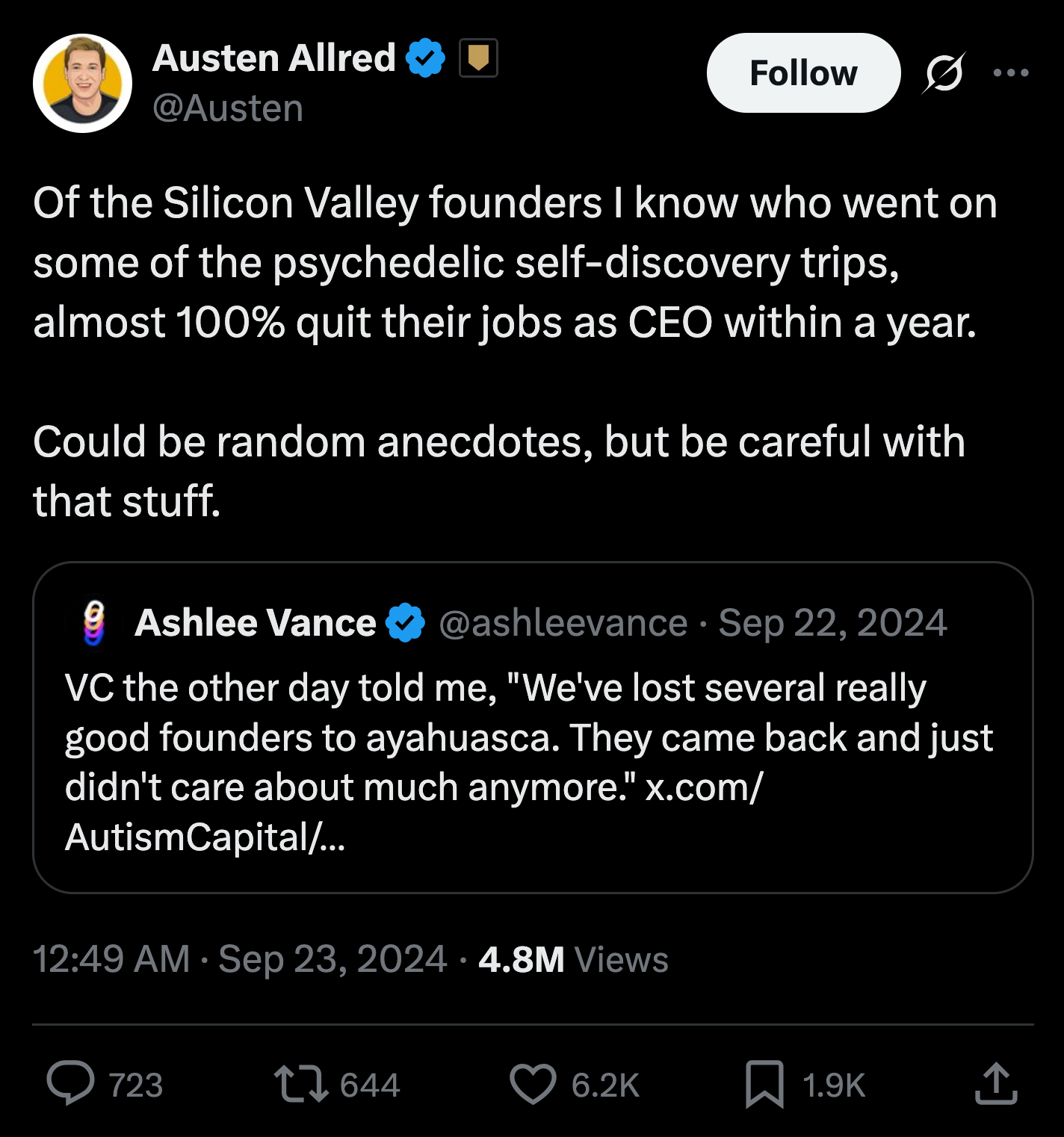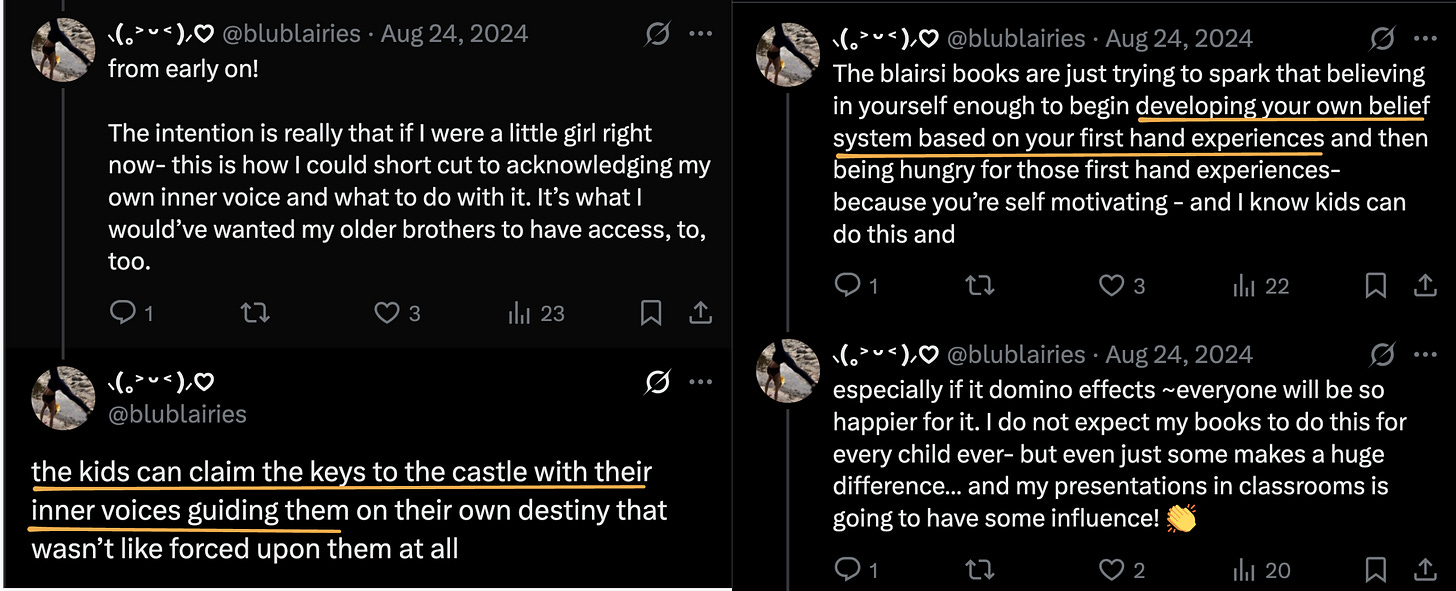Why are we rewarded for making things worse?
A few days ago
described how to detect broken systems in society:you can detect misalignment where profit depends on negating artificial friction rather than reducing natural inefficiency or actual production
In other words: it’s making money by numbing the pain, NOT solving the root cause.
It’s WORSE than doing nothing. The system rewards its own death. Downward spiral.
This is a pathology that affects companies, societies, and also individual humans1.
In the company case, it looks like a CEO who fires the people reporting problems on the factory floor. This numbs the pain, but the problems get worse.
In the individual case, it looks like this: a brilliant man is lonely. He should go make friends. He should fix the problems in him that make him abrasive to others. He doesn’t know how to do that. But he knows how to write / create useful things. He gets rewarded for those things, which bring him fame & fortune, which further isolates him and makes him less relatable. He is rewarded for making his own life worse.
Both of these are examples of the same type of misalignment.
What is the cure for this pathology?
It is very difficult to get out of, because your options look like this:
Make things better (🟢)
Make things better (🔴)
Let things get worse (🟢)
Let things get worse (🔴)
If you’re stuck here, it’s because you only see two options: (1) make it better (2) make it worse. Pain is a signal that something is bad. No pain is a signal it’s better. So, moving towards less pain is good. Unless you do so in a way that is only short term gain, and long term ruin.
You’re stuck because trying to make things better makes things worse. And doing nothing ALSO makes things get worse.
The solution is to understand the pain signal, and decrease it, WITHOUT erasing it. You need to pick (1) 🟢 & (3) 🟢. You need to hold steady as things get worse, because you know they need to, in order to get better.
The bottleneck here is not merely intelligence. It is courage, as we alluded to in “Do you trust the people above you”:
When powerful people ask you for something, that they believe is possible (but they’re wrong), it takes enormous courage to tell them no, and stick by that.
Especially if you need the money. And have kids, or people who depend on you.
One could do a study on what % of economic growth is 🟢 vs 🔴.
Some companies make a lot of money by numbing the pain. Some companies don’t make much money, or make things worse short term, but what they’re doing is solving the root cause, unearthing the problems that have been buried in the system by their predecessors. Paying for the sins of the past. Who bears that burden, for all of us?
Every human being can participate in this project. Every human being is capable of understanding how their contribution fits into the collective system2.
Every human being must make the choice: voluntary short term suffering, or long term involuntary suffering3.
About a year ago the topic amongst SF CEO’s was psychedelics - this thing that was supposed to be good for spiritual growth seemed to destroy ambitious, productive people. This seemed like a paradox. If this stuff increased your awareness and understanding of reality, how can it lead to these powerful, productive people to becoming unproductive bums?
I hope you can see the answer to this question clearly now. It is very simple:
Greater awareness does NOT lead to less ambition. It leads to less ambition if you were numbing a pain, NOT solving a root cause. It allows you to see the difference between (1) 🟢 & (3) 🟢 and (2) 🔴 & (4) 🔴.
If the people who reward you can’t see this difference, then you will be punished for making things better. But the responsibility rests on you. They have the power & resources, but they don’t know any better. They cannot solve this problem. If they get their way, your world will get worse. If you hold steady, your world will still get worse, and IF you’re capable of making it through, it will get better.
This is why
’s children books give me a lot of hope. This idea of helping kids understand the responsibility they have, to “seize the keys to the castle”, because no one else is coming to save them. To trust their firsthand experience and their belief that something in the system is wrong4. It’s a message that adults need to learn too.This is why I am trying to propagate the concept of an “egregore”. What is the general category that includes (1) a company, (2) a team within that company, (3) a whole society, (4) an individual human? There are dynamics that are true of all of them. If you learn one thing about one of them, it generalizes to the others. They are all a kind of “mind”. An egregore is the name I am currently using for the abstract category that includes all of those.
I believe recognizing this category is a base axiom/prereq for understanding open memetics - it makes the overwhelming complexity of society very manageable, very predictable. I am hoping to write down a precise definition of this in the Open Memetics GitHub soon.
This is a recurring theme in open memetics / the human memome project: understanding the relationship between part & whole, you as an individual & the collective minds you exist inside and rely on. Sometimes I think of the work of open memetics as like a relationship councilor / mediator, between self & collective.
You can see how the game theory of this is such that the “good guys” are at a severe disadvantage. The system needs someone to do unrewarded work, or everyone loses. The “bad guys” rely on there being enough good guys that are willing to throw themselves into the meat grinder to keep it going. “Evil” cannot survive without “good”. “Good” can survive without evil. “Evil” can always do more than “good”. “good” can only win by coordinating with other “good”.
This is part of the “asymmetry of good & evil”.
What if you feel like you need to take a stand / override those above you, but you’re actually wrong, you’re missing the context for why the evil thing you’re being asked to do for your job is actually good in the big picture?
That’s totally possible: but if true, then this is solvable. Recall that open memetics is about the “relationship between part & whole”. If the whole is acting in a way that benefits the parts, or in a way where the suffering is necessary, then it must be able to explain that to the parts. A successful relationship requires trust, on both sides.




From Nassim on twitter:
“awareness” leading to less misaligned ambition is v Jungian individuation coded
“successful” people are trapped victims and the “saved” people live calmly on farms
a civ of “saved” people might seem fragile, but I think it’s actually antifragile
This issue has bothered me deeply for some time, and studying my own instincts towards it there’s always the sense of wanting to kick the can down the road, which I suspect might be occurring on a collective level.
About seizing the keys - I was thinking how Mathieu Pageau recently said there’s the problem too of finding the lock…